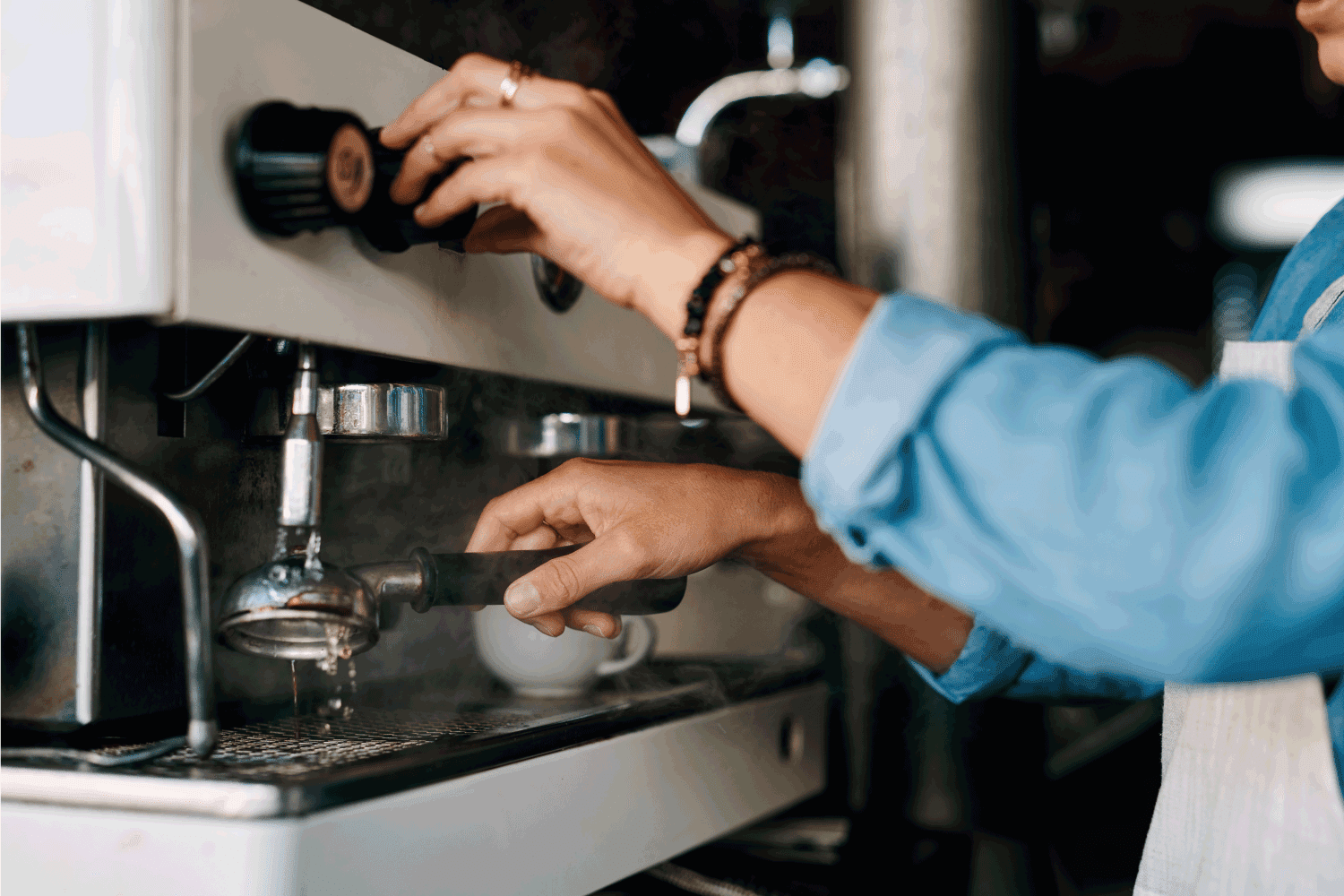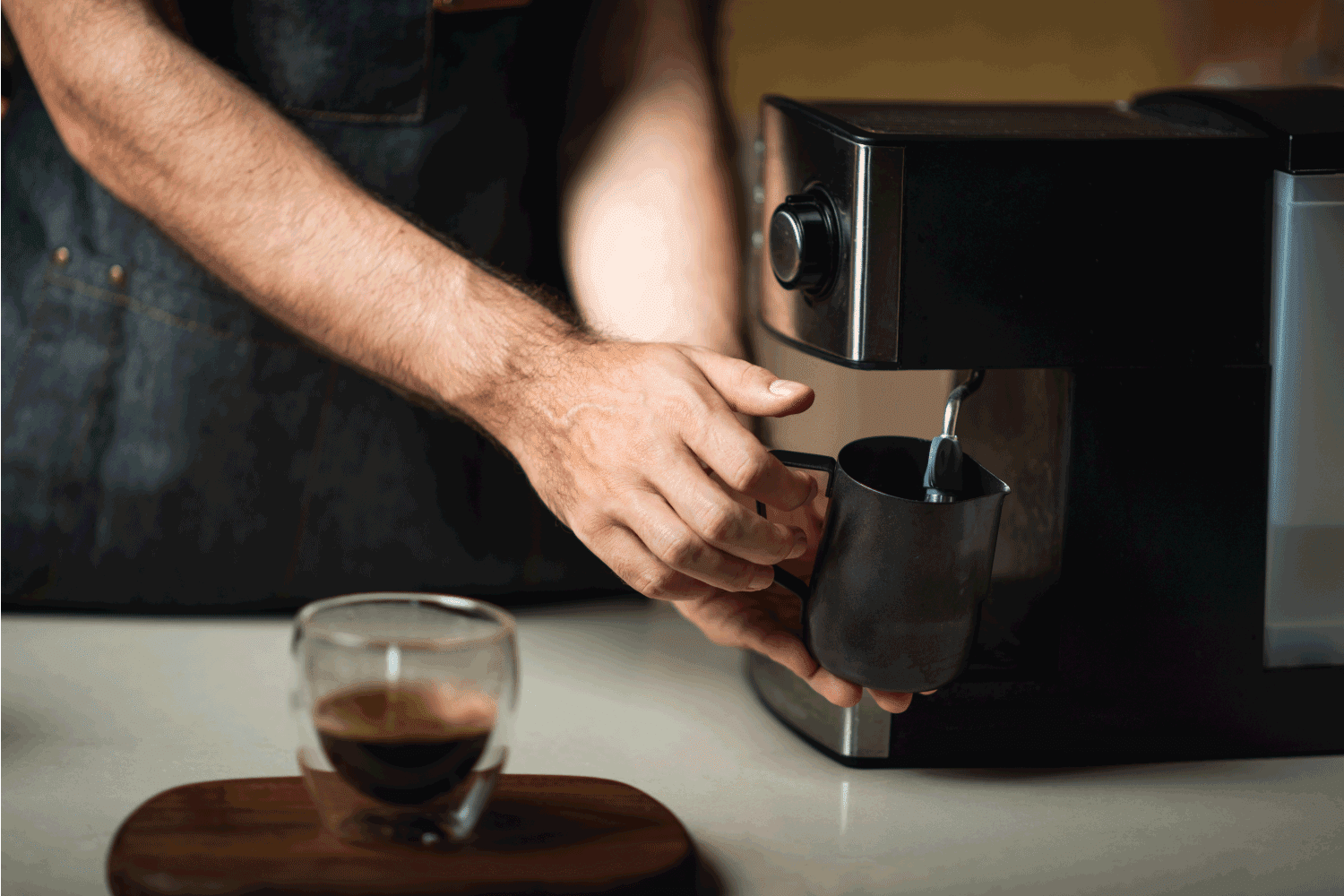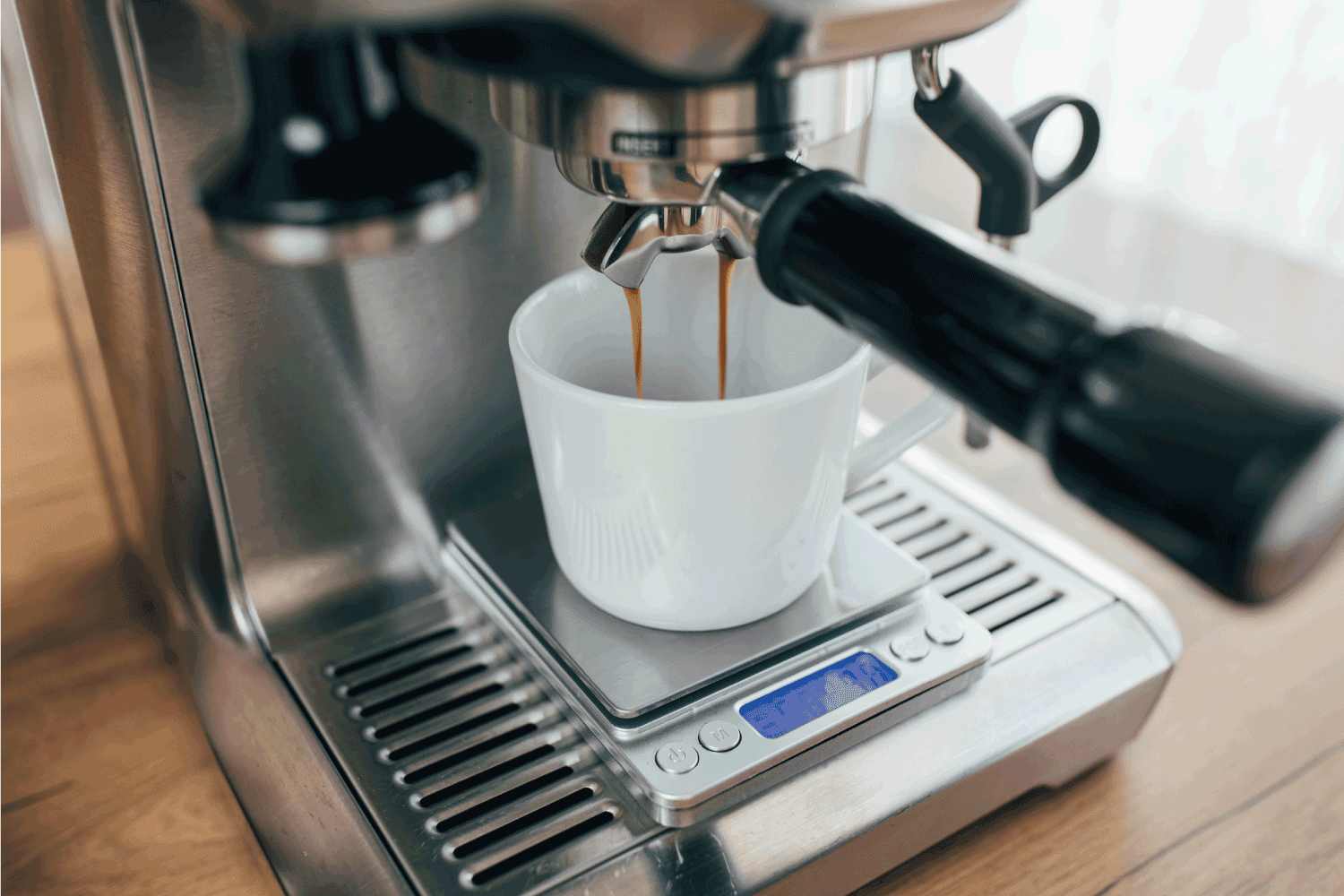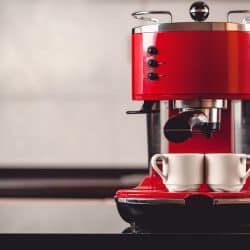Would you like to know if an espresso machine can explode? Well, we have researched this topic and have answers for you. It is essential to understand if an espresso machine can explode to not accidentally hurt yourself.
An espresso machine can explode. If the pressure builds too high without venting, an espresso machine may have a catastrophic failure.
In this article, we will learn if an espresso machine can explode. We will also learn about other interesting related questions like, is it bad to leave an espresso machine on all day, and how do you know when to turn off an espresso machine? Keep reading to learn more.

Can An Espresso Machine Explode?
An espresso machine forces hot pressurized water through ground coffee to create a tasty espresso. With water under pressure being involved, you may be wondering if an espresso machine can explode.
Espresso machines have safety mechanisms to keep pressure from building too high. While these safety features should keep an espresso machine from exploding, it does still happen.
An espresso machine has two primary mechanisms designed to keep it from exploding. These mechanisms are the steam boiler regulator and the pressure release valve.
Steam Boiler Regulator
The steam boiler regulator is just what it sounds like; it is designed to regulate the steam boiler. A steam boiler is the part of the espresso machine that boils water for your espresso.
If the steam boiler regulator begins to malfunction, it may cause the steam boiler to make too much steam, potentially building to dangerous levels.
While this isn't good, it shouldn't by itself cause your espresso machine to explode. Espresso machines have a fail-safe to prevent catastrophic failures.
Pressure Release Valve
The fail-safe on an espresso machine is the pressure release valve. If the pressure builds to dangerous levels, the pressure release valve is made to release the pressure.
Over time a pressure release valve can get clogged and become less effective at venting. If a pressure release valve is completely blocked and the steam boiler builds pressure to dangerous levels, it may end in catastrophic failure.
If this catastrophic failure occurs, the metal steam boiler will be ripped apart by high pressure. The venting gasses will carry with them sharp shards of metal that can cause serious bodily injury.
How To Avoid A Catastrophic Failure

To ensure that your espresso machine never explodes, check the pressure release valve every few months to ensure it isn't clogged. If you do this and your steam boiler regulator breaks and makes too much steam, the excess will be vented safely.
Is It Bad To Leave An Espresso Machine On All Day?
Espresso machines can be expensive, so people like to extend their lifespan as much as possible. Heating and cooling metal can cause wear over time, so people want to know if leaving an espresso machine on all day is bad.
While it is true that the metal components of an espresso machine expand and contract when they heat and cool, this heating and cooling are slow enough that it doesn't cause any long-term damage. There are, however, other components to an espresso machine that do not like to be heated continuously.
Gaskets
The first thing that will get excessive wear is gaskets. These rubber seals in your espresso machine warp a little as they are heated, and leaving your espresso machine on all day will significantly shorten their lifespan.
Electrical Components
Electrical components like to be kept cold. While most critical electrical components in an espresso machine are insulated, they are susceptible to heat.
These components are designed to last between eight and ten years under typical use. If you leave your espresso machine on all day, you can expect these components' life span to be significantly reduced.
It would be best if you didn't leave your espresso machine on all day because it impacts its lifespan.
The Solution
The primary reason that people want to leave their espresso machine on all day is that they don't want to wait for the machine to heat up to enjoy espresso. There is a great solution to ensure that your machine is always ready when you are. The answer is an electric timer.
You can plug your espresso machine into an electric timer that will turn the machine on at a set time. You can have your espresso machine pre-heated for you when you wake up or have your espresso machine ready to go when you get home from work.

How Long Can You Leave Water In An Espresso Machine?
Changing the water in your espresso machine can be a hassle. You have to dump out all the old water, scrub it clean, and refill the water reservoir. Most people procrastinate doing this as long as possible, but how long can you leave water in an espresso machine?
Water is the liquid of life. Because water is essential for life, you can find microorganisms anywhere there is sitting water. These microorganisms are everywhere, even in the air we breathe, so avoiding them is nearly impossible.
If you leave your water sitting in your espresso machine, it will start becoming contaminated right away. If the water is left sitting for more than 48 hours, these microorganisms will reproduce to dangerous levels, tainting the water.
The best solution is to change the water in your espresso machine at least every 48 hours. Some espresso machines can boil the water reservoir to kill any microorganisms. This will also work at keeping the water in your espresso machine safe to drink as long as your boil the water at least every 48 hours.
How Do You Know When To Turn Off An Espresso Machine?
You should turn off an espresso machine after making your espresso. To tell when your espresso machine is done making espresso wait for the espresso to stop dripping from the spout. You know that you are finished once you get only a few drops every few seconds or the flow has stopped completely.
Then you will want to power off your espresso machine. Allow the machine to cool slowly to keep from damaging it. Never pour water on your espresso machine to help it cool quicker. Doing so could cause the metal components to warp, potentially ruining your espresso machine.
While waiting to put your espresso machine away can seem tedious, you should allow it to cool in the open air so that it cools slowly. Also, don't try to move your espresso machine while it is still hot. While doing so is a safety risk, it is also dangerous to your machine.
While the metal is still hot, it is more malleable and susceptible to bending or warping. It would be best to leave your espresso machine undisturbed while it cools completely.
Are Heat Exchanger Espresso Machines Good?
Heat Exchanger Espresso Machines pull water straight from the water source to the steam boiler. There the water is heated to steam temperature. When you pull a shot of espresso, the water flows from the cold water source through a tube in the steam boiler and is flash heated to brew temperature.
These machines are different from other espresso machines, which don't flash heat the brewing water. This difference has led people to ask if Heat Exchanger Espresso Machines are good.
Like anything else, it has its pros and cons. Whether a Heat Exchanger Espresso Machine is good for you will depend on what you want from an espresso machine.

Advantages
One advantage of a Heat Exchanger Espresso Machine is that it uses less power than a typical espresso machine.
Heat Exchanger Espresso Machines also cost less than double boiler espresso machines, which can get very expensive. Heat Exchanger Espresso Machines also are cheaper to repair than double boiler espresso machines.
Another pro to a Heat Exchanger Espresso Machine is that it draws its brew water straight from the tap. Without any water sitting around in a reservoir, your espresso will never have that stale water taste.
While there does seem to be a lot of advantages to a Heat Exchanger Espresso Machine, there are some disadvantages.
Disadvantages
In a Heat Exchanger Espresso Machine, because the brew temperature is directly tied to the steam temperature, you can't independently adjust them.
Also, it isn't very exact when you adjust the temperature. Finding the right brew temperature for your espresso is more trial and error.
Who Is A Heat Exchanger Espresso Machine Right For?
A Heat Exchanger Espresso Machine is best for someone who likes the same cup of espresso every day. If you don't need to adjust the temperature often, it may be the perfect espresso machine.

Final Thoughts
In this article, we learned espresso machine could explode if the steam boiler regulator and pressure release valve fail simultaneously. We also learned that you should change the water in your espresso machine at least every 48 hours to keep microorganisms from tainting the water.
We hope you enjoyed this article. If you want to learn more, check out some of these other posts.
Coffee Maker Vs. Espresso Maker Vs. French Press – What Are The Differences?
How To Clean A Cuisinart Coffee Grinder






